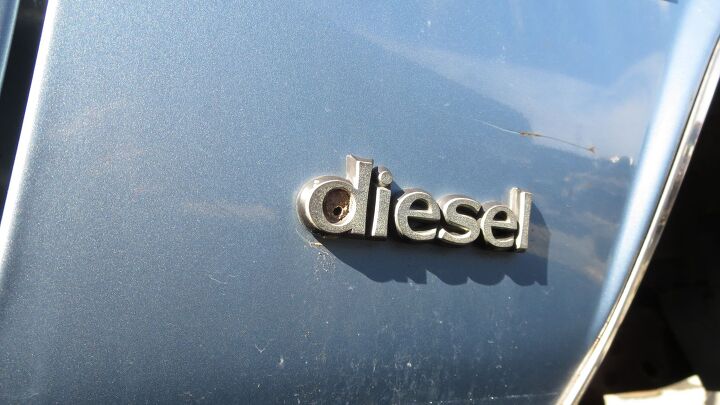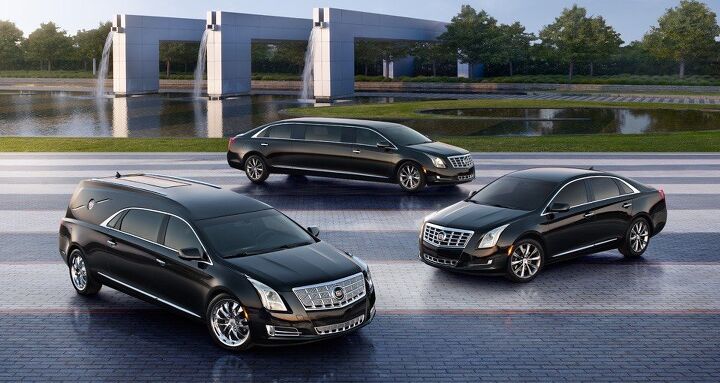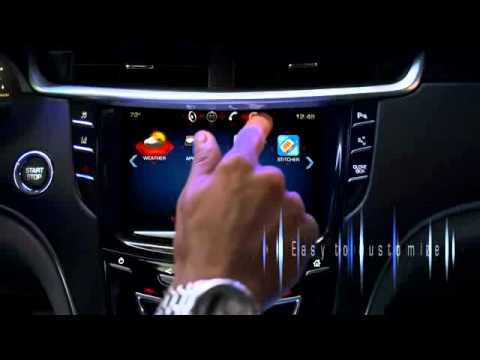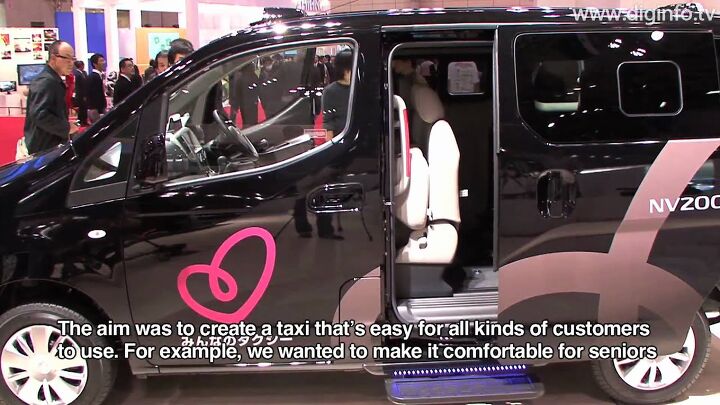#fleets
Biden Executive Order to End Gasoline Powered Vehicle Purchases
On Wednesday, President Joe Biden signed an executive order committing the United States to the acquisition of only zero-emission vehicles by 2035 for the federal vehicle fleet.
This is totally in line with the administration’s stated desire to focus on transitioning the nation toward renewable energy sources while advancing electric vehicle adoption rates. But the event was curiously not celebrated with the applicable fanfare. Biden signed the document without media there to capture the moment and reporters failed to ask about it during a press event on the White House lawn later in the day. Were it not for an official fact sheet issued by the administration later in the day, we may never have known there even was a signing.
Could Ford's Electric Fleet Sales Be Slower Than Expected?
Despite most automakers proudly proclaiming their intention to shift toward EV-dominant portfolios, customers haven’t been sharing their enthusiasm. While there’s a subset of loyal early adopters that are eager to see electrification become the norm, the relative infancy of the technology and prevalent gaps in the charging infrastructure has kept them from becoming a majority. But manufacturers seem to think it’s just a matter of time and that they’ll be able to make up the difference through fleet sales.
Advertised with lower than average operating costs and juicy subsidies being offered throughout the developed world, automakers have convinced themselves that EVs will soon become the de facto rides for various entities needing to round out their stables. Meanwhile, we’re hearing inklings that Ford is seeing pushback from fleet customers over its s new F-150 Lightning pickup and E-Transit van.
Plug Power Expands ECommerce Use of Hydrogen and Fuel Cells at Walmart
Plug Power, a provider of hydrogen engines and fueling solutions, is expanding its support of Walmart’s eCommerce network. Plug Power currently supports more than 9,500 GenDrive fuel cell-powered vehicles used by 37 Walmart distribution centers across North America.
Greenwashed: UK Plug-in Fleets Enjoy the Taxpayer Perks, Never Plug In
In Europe, diesel now holds a reputation as favorable as that of the dark lord of the underworld, while electric propulsion may as well have descended from Heaven. It wasn’t this way just a few years ago.
That said, in the UK, government incentives towards green vehicle purchases have, like the U.S., been ongoing since 2011. A recent study of corporate plug-in hybrid fleet vehicles purchased with the assistance of government grants reveals many buyers were just looking to dodge diesel taxes while bilking the taxpayer for a cheaper ride. Plugging in these plug-ins was not a priority.
Day-rate Disruptors: Rental Agencies Sure Seem Excited About Mobility
Car rentals have evolved rather dramatically in the new millennium. While you can still reserve over the phone before walking into an office to pick up the manager’s special for the agreed upon timeframe, alternatives are many. ZipCar transformed how some people get around an urban environment by allowing customers access to an array of automobiles at hourly rates. Seeing its potential, Avis acquired the company in 2013, expanding its function to include a less stringent return policy via ZipCar Flex.
Meanwhile, Enterprise has its own short-term rental services. Recently, the company has been on a kick to purchase as many mobility firms as it can. Hertz, which has been a little slower to dive into mobility culture, does offer alternatives to traditional rentals in specific markets. It also announced a new strategic partnership with the tech firm Aptiv last July to start testing autonomous fleets this fall.
This, of course, is all taking place in an era where carmakers are launching fleets of their own while attempting to rebrand themselves as data and mobility companies. But surely these rental agencies are just hedging their bets and trying to adopt new tech to better serve their customers. They’re not about to adopt the same tired rhetoric, are they?
Fear Not - a Lincoln MKT Might Still Cart You Off to the Afterlife
Seldom talked about by the teeming masses, the slow-selling Lincoln MKT crossover gets a lot of buzz among certain subsets of the population. People transporting corpses, for example, or perhaps prom-goers who’ll soon learn their tolerance for badly mixed alcoholic drinks.
The aging, whale-faced MKT fills a niche role, and Lincoln isn’t ready to ditch its livery clientele just yet, despite rumors of its imminent demise. It seems Ford Motor Company has more respect for the occupants of hearses than drivers of small passenger cars.
Here's What Brown Can Do for Tesla Motors
The United Parcel Service said Tuesday it will purchase 125 all-electric semi trucks from Tesla, surpassing PepsiCo’s order to make it the largest known order for the vehicle thus far. While the purchase isn’t tantamount to UPS making a complete shift to an electric fleet, the company has previously stated it wants to convert up to 1,500 delivery trucks in New York to battery electric units and has been researching non-traditional powertrains for some time.
With so many of its trips taking place between distribution hubs, a medium-range EV truck boasting a high capacity could be a good fit for UPS. At the very least, Tesla seems to think so — the delivery service provided the automaker with extensive data on how its trucks function on real-world routes in order to evaluate how the hulking BEVs might perform in its fleet. Of course, the cooperative experience also helps both companies promote themselves as leaders in the green revolution.
Self-driving Taxis Will Become the Most Disgusting Spaces on Earth
With the entire automotive industry looking toward a future of driverless mobility, commercially owned self-driving taxis seem poised to be on the frontline of tomorrow. However, nobody seemed to realize that these vehicles will eventually become little more than mobile toilets.
Animals are universally disgusting and humans are no exception. While we’ve mastered land, air, and sea, consider the spaces we occupy while we traverse those expanses. Rental cars are returned filled with candy wrappers, spilt soda, and human hair. Uber vehicles are routinely vomited in. The subway is a haven for disease. Airplane interiors experience havoc within the first hour of a flight as the worst of us begin defecating into the seats, too lazy and weak to control ourselves.
Autonomous taxis aren’t likely to endure better treatment. Without a driver present, the urge to have drunken sex will be far too strong — and those odds only increase when you add a second occupant to the equation. With nobody watching, we’ll leave half-consumed hamburgers and cans of sweetened tea on their floors that will roll around and turn the carpet into a sticky magnet for larger pieces of garbage.
Ford's Rao to Ride-Sharing Firms: Our Service Centers Are Waiting; Come and Get It
Ford Motor Company may soon press dealership service centers to prioritize maintenance and repairs for ride-sharing fleets and their employees. This comes after the company’s decision to expand its in-house shuttling firm, known as Chariot, and as its long-term plan to bring an autonomous ride-sharing solution to market by 2021 takes shape. But Ford also knows rival companies can be a strong source of revenue. Omnicraft, anyone?
Even moderately sized cities have several thousand Uber and Lyft drivers, and Ford’s CEO of Smart Mobility Raj Rao thinks they represent an untapped resource. He believes service centers should go the extra mile for them, even if it means some dealerships have to stay open 24 hours to provide swift turnarounds.
Here's One Upside to a European Diesel Downfall
With European regulators taking a closer look at the continent’s wonder fuel — diesel, that is — in the wake of Volkswagen’s emissions scandal, oil burners could hasten their disappearance from European Union streets.
That would be great for police officers in the UK, who seem increasingly confused about what kind of fuel goes in their patrol car’s tank.
Cadillac's XTS Based Livery Fleet Fleet Announced: Sedan, Limo & Hearse. Livery Sedan to Have "More Luxury" Than Standard XTS Models
With Lincoln abandoning the tradition Panther platform Town Car and moving to the awkwardly shaped MKT for its offerings to livery fleet operators, you might think that Cadillac would aggressively market their new XTS to the “black car” industry. The XTS, like the outgoing Town Car, is a traditionally styled luxury sedan. Cadillac just announced it’s plans going forward for professional vehicles, and while they are indeed based on the XTS. Cadillac will be appealing to fleet operators that want to offer something a bit more luxurious to their customers than the decontented Town Cars of recent years.
Cadillac XTS: The High-Tech… Livery Car?
Though we haven’t even seen a production version yet, Cadillac’s forthcoming XTS has already lived a full, controversy-laden life. Initially suggested as a replacement for the DTS/STS, the Cadillac faithful quickly recoiled at the idea of a luxury “flagship” based on a stretched version of the Epsilon II midsized platform that underpins the Buick LaCrosse and Chevrolet Malibu. But with the Cadillac Ciel Concept showing the way forward for a “true” Caddy flagship which will eventually become the brand’s standard-bearer, the XTS’s role has been somewhat redefined. Expectations for the XTS were walked back by GM CEO Dan Akerson, who famously said that it was
not going to blow the doors off, but will be very competitive
And this week the enigma that is the XTS only deepened, as Cadillac announced two bits of seemingly contradictory information about it: first, that it would spearhead a new high-tech interface (see video above) and second, that it would mark GM’s return to the livery car business.
What's Wrong With This Picture: Retail Versus Fleet Sales In July
The debate over July’s sales results is going to heat up again with this infographic showing the fleet and retail results for the major US brands. And one thing is clear: Toyota and Honda’s tumble from the top was not disguised by a huge bump in fleet sales. Though retail volume at the top two Japanese brands dropped by between 20 and 30 percent, both cut way back on fleet sales as well… which is a highly recommendable move when supply problems hit. After all, you have to squeeze every last penny out of the remaining volume until inventory levels even out. On the other hand, both Ford and GM cranked up fleet volume last month, with Ford’s fleet percentage leaping to an industry-leading 31%. That gives Ford the lowest retail percentage of all major automakers, with GM only five points ahead. Chrysler was the only other major OEM under 90% for the month, at 84%. So those who argue that domestics are taking over the industry need to dial back their expectations a bit for the moment: between the supply issues and the fleet picture, it’s too early to determine what exactly is going on in the industry. But if the domestics trim back on fleet and Toyota and Honda continue to lose volume over the month of August, then we can start talking about the kinds of seismic shifts that some are already reading in the sales numbers.
Nissan NV200 Wins NYC "Taxi Of Tomorrow" Contract
Return Of The Ram Vans: Fiat Ducato, Dobl Coming To The US Next Year
With Sprinter back under the Mercedes sign, Chrysler Group is looking to Europe and Fiat’s Doblò (above) and larger Ducato to expand back into the commercial van segment, starting next year. The European commercial vans are a far cry from the last Ram-branded body-on-frame vans, as the Doblò is actually based on a 108.5 inch wheelbase version of Fiat’s SCCS platform, a development of GM’s Gamma subcompact platform. As a result, the front-drive Doblò comes with engines ranging from 1.3 to 2.0 liters, and are largely powered by diesel engines. The Doblò is available in everything from a two-door chassis cab pickup, a three-, four- or five-door panel van, or a five-door passenger configuration.Because the new Ram commercial vehicles will be imported starting next year, expect only the van variants to avoid the “chicken tax.“
The larger, rear-drive Ducato offers a dizzying number of body variants, with wheelbases ranging from 118.1 inches to 149.6 inches, and offers only diesel engines in displacements from 2.2 to 3.0 liters with 100-155 HP. Until we get more details, it’s impossible to know which versions of these vehicles will come to the US, and whether the diesel and (for possibly even natural gas) versions will come as well. But the real question remains the same as it was a year ago:
how will these Euro-derived efficiency-oriented urban haulers jive with the Ram brand’s overbearingly bro-magnon branding?




























Recent Comments